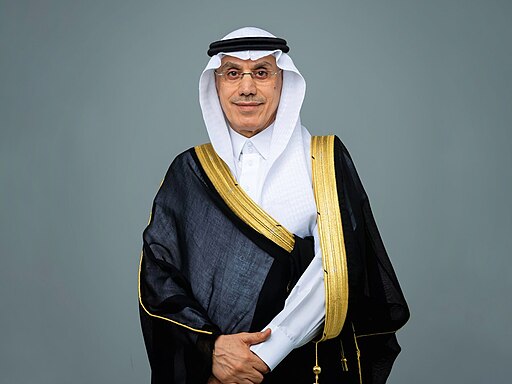IsDB socio-economic projects: Islamic Development Bank to fund key initiatives in agriculture, energy, health care, and infrastructure to drive sustainable growth and regional integration
The Islamic Development Bank (IsDB) has pledged to finance $3 billion for 20 socio-economic development projects across 17 member nations, reaffirming its commitment to inclusive growth and sustainable development. During the bank’s 357th board meeting, presided over by President Muhammad Al-Jasser, key sectors such as agriculture, water resources, energy, health care, and infrastructure were highlighted as focal points for these investments.
This significant financial commitment comes at a crucial time for many of the participating countries, as global economic uncertainties continue to challenge their development goals. The projects are designed to strengthen resilience in vital sectors and create opportunities for shared prosperity.
Kazakhstan is set to be one of the major beneficiaries of this funding, with $1.15 billion allocated to enhance its water resource management. This initiative aims to improve agricultural productivity and address food and water security issues—two critical areas as the country seeks to stabilise its rural economy and reduce its reliance on external imports.
Embed from Getty ImagesIn Jordan, $200.3 million will go towards strengthening food security. The funds will be used to expand the country’s strategic reserves, ensuring that the population has sufficient access to essential food supplies amid rising global food prices.
Kyrgyzstan, another recipient, will see $45.11 million invested in agricultural mechanisation, which will directly support smallholder farmers by improving efficiency and crop yields. Additionally, an extra $58.25 million will be directed towards enhancing energy infrastructure in the Issyk-Kul region, addressing one of the country’s most pressing needs—access to reliable energy sources.
Senegal will receive €65.1 million ($70.96 million) to accelerate agricultural industrialisation, a move seen as pivotal in transforming the country’s economy by boosting production and creating jobs in rural areas. Similarly, Togo has been granted €55.23 million to foster income-generating activities, specifically targeting vulnerable populations to uplift livelihoods and reduce poverty.
In Azerbaijan, $96.73 million will be allocated to improve water resource management, crucial for supporting agriculture and bolstering food security. The Maldives will benefit from $64.65 million, aimed at expanding its fishing industry—a critical sector for the island nation’s economy.
Morocco has secured €441.82 million for a major hydropower project. This renewable energy initiative will help meet peak electricity demand, reducing the country’s dependence on fossil fuels and advancing its green energy transition. Meanwhile, Gambia will receive $40 million to enhance its transport sector, a vital move to improve connectivity and stimulate economic activity.
Sierra Leone has been allocated €70.32 million to enhance infrastructure, particularly through soil stabilisation technology. The funds are expected to significantly improve the country’s road networks, which are essential for supporting agriculture and trade.
Comoros, an island nation dependent on maritime transport, will benefit from $15 million to improve maritime connectivity and safety, a critical lifeline for its economy and people. In Uzbekistan, $138.8 million will be used to expand a key road, improving traffic flow and safety—further enhancing the country’s internal connectivity.
In Cameroon, the focus is on upgrading transport infrastructure with a grant of $176.3 million. This will have far-reaching implications for trade and regional integration, as improved infrastructure allows for smoother movement of goods and services across borders.
Turkey will receive €246.4 million for its Eastern Middle Corridor Railway Project. This project is a key part of the country’s strategy to improve regional connectivity and enhance trade routes between Asia and Europe. An additional $100 million has been allocated to support post-earthquake recovery efforts, aimed at boosting productivity and rebuilding critical infrastructure.
Pakistan will also benefit from the IsDB’s financing, with $118.4 million earmarked to reduce poverty and improve food security in vulnerable communities. This project aligns with the country’s broader objectives to uplift rural populations and address chronic issues of hunger and malnutrition.
Mozambique, another recipient, will use $19.8 million to strengthen its healthcare system. This funding is expected to improve access to essential health services, particularly in remote and underserved areas. Cote d’Ivoire has been granted €260 million ($278.2 million) to support highway construction, which will play a vital role in regional integration and boost agricultural productivity by facilitating better access to markets.
President Muhammad Al-Jasser emphasised that these projects reflect the Islamic Development Bank’s core mission of fostering sustainable economic growth and promoting shared prosperity. “The initiatives align with our vision of inclusive development, where all member nations benefit from enhanced infrastructure and integrated regional economies,” Al-Jasser said.
In addition to these national-level projects, the bank also approved a $10 million grant in collaboration with the World Health Organization (WHO) to support global healthcare initiatives. This collaboration is particularly aimed at improving health systems in low-income countries, further demonstrating the IsDB’s broad commitment to social and economic development.
The Islamic Development Bank’s $3 billion investment comes at a pivotal moment for many of its member nations, providing the necessary financial support to tackle key challenges in their respective economies. By focusing on long-term sustainability and regional cooperation, these projects offer a path towards greater economic resilience and prosperity.
